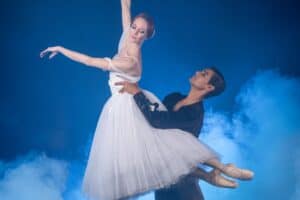Usually the assumption is that if an audition call is sent out to acting agencies, quality and professionalism are expected to be the order of the day (otherwise it would be a public call).

While there was quality at the auditions for James Ngcobo’s direction of James C Wolfe’s The Coloured Museum, there were also hopefuls who entered the room with no clue as to what was coming out of their mouths during their audition. One fellow strolled into the room clad in black, with a finely trimmed mohawk and a spring in his step.
Ngcobo was impressed by his confidence in the preceding interview and was further enticed by his professional qualifications and his declaration: “Acting is my life”.
The man began his audition in a slow, rather concerning manner, fluffing his lines almost immediately. Ngcobo urged him to calm down and start again. The would-be star took a deep breath and began his monologue once more, with the same result for the second, third and fourth time. Ngcobo was slightly irritated, but he did not convey his annoyance to the actor, instead urging him to sing as the audition is two-pronged. The man rose to the occasion phenomenally well, singing Aretha Franklin’s version of Bridge Over Troubled Water. After concluding, he apologised to Ngcobo for not completing his lines, citing nerves as a reason, but Ngcobo simply thanked him for his time and waved him off.
“It was not nerves at all,” Ngcobo said to his assistant.
“He simply did not prepare for the audition and wasted everybody’s time, including those who came here thoroughly prepared.”
Opportunities like these do not come around often and if it is true that struggling actors are the most dedicated, then this man simply did not give out-of-work performers a good name with his shoddy display.
But luckily for Ngocbo and everyone else in attendance, the rest of the hopefuls gave sterling acting and singing performances. Most used American works with the requisite accent, as this play tackles matters of race in Eighties America. The Coloured Museum takes place in a cultural museum, with the 11 living “exhibits” exploring African-American identity via stereotypes. Through characters like the pert and ever-smiling Miss Pat, airline hostess for Celebrity Slaveship, and The Man, a successful businessman who only wants to be Black at the weekend, Wolfe confronts history and clichés with gutsy humour.
MoMo Matsunyane was an inspiration on the day, though she showed up to the audition room without the correct information. Firstly, she was not aware that this was not a public audition call, and secondly, she thought she was auditioning for Ntozake Shange’s seminal For Coloured Girls Who Have Committed Suicide When The Rainbow Is Enuf, and had prepared a monologue from that play. After learning of these mistakes, Matsunyane asked Ngcobo for some time to find something quickly and return to audition for him. The director obliged and she returned half an hour later with a first-rate performance that could possibly land her one of the roles.
“The audition was nerve-wracking,” Matsunyane said afterwards.
“Luckily Bra James gave me some time and I found something else online, prepared for about 30 minutes and then did it.”
Matsunyane’s powerful offering illustrated how multi-dimensional she is as an actor and she capped it off with a resounding performance of Etta James’ All I Could Do Was Cry.
Dolly Louw also gave an inspiring performance, also opting to audition in an American accent. She was highly invested in the character that she was portraying and her extensive expressiveness was rounded off with a powerful rendition of Aretha Franklin’s Respect.
“I think the audition went well; better than expected,” said Louw.
“I do a lot of research before auditions, because you have to find the right piece to perform and that is a challenge. Acting can be frustrating at times, but it is my life – even though we have to live with the ‘struggling artist’ tag.”
Support Local Journalism
Add The Citizen as a Preferred Source on Google and follow us on Google News to see more of our trusted reporting in Google News and Top Stories.








